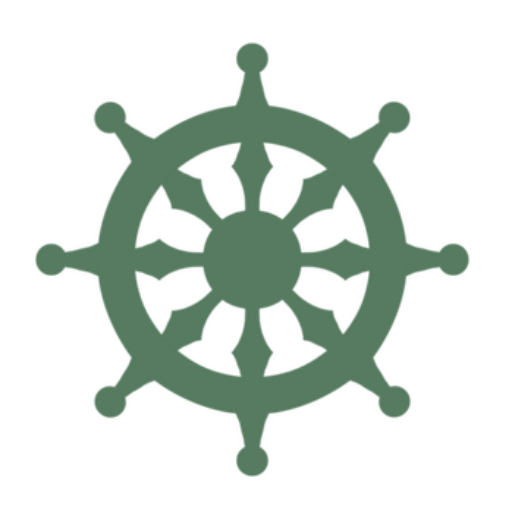Taking the first step toward recovery from addiction is both courageous and overwhelming. If you or a loved one is struggling with substance use, understanding your treatment options is crucial to making an informed decision about your care. When it comes to finding quality rehabs in Ontario Canada, the landscape can seem complex, but with the right information, you can navigate your path to lasting recovery with confidence.
At Twelve Mile Recovery, we understand that choosing the right treatment facility is one of the most important decisions you’ll make in your recovery journey. Our comprehensive approach to addiction treatment has helped countless individuals reclaim their lives from the grip of substance abuse. This guide will provide you with essential information about what to expect from rehabs in Ontario Canada and how to prepare for admission into a quality treatment program.
Understanding the Current Landscape of Addiction Treatment in Ontario
Ontario’s healthcare system provides various addiction treatment options, ranging from publicly funded programs to private rehabilitation centers. The province has made significant investments in mental health and addiction services, recognizing that substance use disorders require specialized, evidence-based treatment approaches. When researching rehabs in Ontario Canada, you’ll encounter different levels of care designed to meet individuals where they are in their recovery journey.
The addiction treatment field has evolved considerably over the past decade. Modern rehabilitation centers now recognize that addiction is a complex medical condition requiring comprehensive treatment that addresses not only the physical aspects of dependence but also the psychological, social, and spiritual dimensions of recovery. This holistic approach is particularly important when considering rehabs in Ontario Canada, as the most effective programs integrate multiple therapeutic modalities to support long-term sobriety.
Recovery is not a one-size-fits-all process, and the best treatment centers understand this fundamental truth. Each person brings their unique history, trauma experiences, co-occurring mental health conditions, and personal circumstances to treatment. Quality rehabs in Ontario Canada recognize these individual differences and tailor their programs accordingly, ensuring that each client receives personalized care that addresses their specific needs and goals.
Types of Treatment Programs Available
Inpatient Treatment
Inpatient treatment represents the most intensive level of care available at rehabs in Ontario Canada. This residential approach provides 24-hour medical supervision and support in a structured, safe environment away from the triggers and stressors of daily life. During inpatient treatment, individuals live at the facility for the duration of their program, typically ranging from 30 to 90 days, depending on their specific needs and circumstances.
The inpatient model offers several significant advantages for individuals struggling with severe addiction or those who have been unsuccessful with outpatient treatment in the past. The immersive nature of residential care allows for intensive therapeutic work, medical detoxification when necessary, and the development of crucial coping skills in a supportive community setting. At Twelve Mile Recovery, our inpatient program combines evidence-based treatments with innovative therapeutic approaches to address the whole person, not just the addiction.
Medical supervision during inpatient treatment is particularly important for individuals withdrawing from substances like alcohol, benzodiazepines, or opiates, where withdrawal symptoms can be dangerous or life-threatening without proper medical management. Quality rehabs in Ontario Canada maintain medical staff trained in addiction medicine who can safely guide clients through the detoxification process while managing any complications that may arise.
Virtual Treatment Programs
The landscape of addiction treatment has expanded significantly with the introduction of virtual treatment programs, making recovery services more accessible to individuals across Ontario. Virtual treatment represents an innovative approach that allows people to receive professional addiction treatment from the comfort and privacy of their own homes while maintaining their daily responsibilities and commitments.
These programs have proven particularly valuable for individuals who face geographical barriers, have transportation challenges, or need to maintain employment or family obligations during treatment. Virtual treatment programs offered by reputable rehabs in Ontario Canada maintain the same high standards of care as in-person treatment, utilizing secure video conferencing technology to deliver individual counseling, group therapy, educational sessions, and family therapy.
The effectiveness of virtual treatment programs has been well-documented, especially when combined with other levels of care as part of a comprehensive treatment plan. Many individuals find that virtual treatment provides a comfortable environment where they can be more open and honest about their struggles, leading to more effective therapeutic outcomes. At Twelve Mile Recovery, our virtual treatment program incorporates all the same evidence-based therapeutic modalities as our in-person services, ensuring consistent quality of care regardless of the delivery method.

Specialized Treatment Modalities That Make a Difference
Trauma Informed Martial Arts
One of the most innovative therapeutic approaches gaining recognition in addiction treatment is trauma informed martial arts. This unique modality recognizes the strong connection between trauma and addiction, offering a physical and mental practice that helps individuals reclaim their sense of personal power and safety. Many people struggling with addiction have experienced various forms of trauma, and traditional talk therapy alone may not be sufficient to address these deep-seated wounds.
Trauma informed martial arts provides a safe, structured environment where individuals can reconnect with their bodies in a positive way while developing discipline, focus, and self-confidence. The practice emphasizes mindfulness, breath work, and controlled movement, helping participants develop emotional regulation skills that are crucial for long-term recovery. This approach is particularly effective for individuals who have difficulty expressing themselves verbally or who feel disconnected from their physical selves due to trauma or substance use.
The integration of trauma informed martial arts into addiction treatment represents the kind of innovative thinking that distinguishes exceptional rehabs in Ontario Canada from more traditional programs. At Twelve Mile Recovery, we’ve witnessed remarkable transformations in clients who engage with this therapeutic modality, as they develop not only physical strength and coordination but also mental resilience and emotional stability that supports their recovery journey.
Yoga, Meditation & Mindfulness
The incorporation of yoga, meditation, and mindfulness practices into addiction treatment has gained widespread acceptance due to their proven effectiveness in supporting recovery. These ancient practices offer practical tools for managing stress, reducing cravings, and developing greater self-awareness – all crucial elements of successful addiction recovery. Quality rehabs in Ontario Canada recognize that healing occurs on multiple levels and integrate these holistic approaches alongside traditional therapeutic methods.
Yoga combines physical movement, breath work, and meditation to create a comprehensive practice that addresses both the body and mind. For individuals in recovery, yoga provides a healthy outlet for stress and anxiety while helping to repair the physical damage that may have resulted from substance use. The practice also cultivates patience, acceptance, and non-judgmental awareness – qualities that are essential for navigating the challenges of recovery.
Meditation and mindfulness practices teach individuals how to observe their thoughts and feelings without automatically reacting to them. This skill is particularly valuable in recovery, as it helps people recognize triggers and cravings without immediately acting on them. Regular meditation practice has been shown to reduce stress hormones, improve emotional regulation, and enhance overall well-being, making it an invaluable component of comprehensive addiction treatment.
Life Skills Development
Recovery involves much more than simply stopping substance use – it requires rebuilding one’s life and developing the practical skills necessary to thrive in sobriety. Life skills development is a crucial component of effective treatment programs at rehabs in Ontario Canada, addressing the practical challenges that individuals face as they transition back into daily life after treatment.
Life skills training may include financial management, job readiness preparation, communication skills, relationship building, time management, and stress management techniques. Many individuals entering treatment have neglected these areas of their lives while struggling with addiction, and developing these skills is essential for maintaining long-term recovery. The goal is to help individuals become self-sufficient and confident in their ability to handle life’s challenges without turning to substances.
At Twelve Mile Recovery, we recognize that each person enters treatment with different strengths and areas for growth. Our life skills programming is individualized to address each client’s specific needs and goals, ensuring that they leave treatment with a solid foundation for building a successful, sober life. This practical approach to recovery preparation significantly improves the likelihood of long-term success and reduces the risk of relapse.
Physical Wellness as a Foundation for Recovery
Physical Fitness Programs
The relationship between physical health and addiction recovery is well-established, making physical fitness programs an essential component of comprehensive treatment at quality rehabs in Ontario Canada. Regular exercise provides numerous benefits for individuals in recovery, including improved mood, reduced anxiety and depression, better sleep quality, increased energy levels, and enhanced self-esteem.
Exercise also provides a healthy outlet for stress and negative emotions while helping to repair some of the physical damage that may have resulted from substance use. Many individuals struggling with addiction have neglected their physical health, and a structured fitness program helps them reconnect with their bodies in a positive way. The discipline and routine required for regular exercise also supports the development of healthy habits that extend beyond the gym.
The endorphins released during exercise provide natural mood enhancement, helping to combat the depression and anxiety that often accompany early recovery. This natural high can be particularly important for individuals who are learning to find pleasure and satisfaction in activities other than substance use. Physical fitness becomes not just a component of treatment but a lifelong tool for maintaining mental health and preventing relapse.
Nutritional Coaching
Substance use often leads to poor nutritional habits and deficiencies that can significantly impact both physical and mental health. Nutritional coaching is therefore an important component of holistic addiction treatment offered by comprehensive rehabs in Ontario Canada. Proper nutrition supports the body’s natural healing processes, improves brain function, and helps stabilize mood – all crucial elements of successful recovery.
Many substances interfere with the body’s ability to absorb and utilize nutrients properly, leading to deficiencies that can contribute to depression, anxiety, cognitive problems, and physical health issues. A qualified nutritional coach works with individuals to develop healthy eating habits, address specific nutritional deficiencies, and create sustainable meal planning strategies that support long-term recovery.
Nutritional education also empowers individuals to take control of their health and well-being in a tangible way. Learning to nourish the body properly becomes part of the broader process of self-care and personal responsibility that is central to recovery. This knowledge and these skills continue to benefit individuals long after they complete their treatment program.
Substances Commonly Treated at Ontario Rehabilitation Centers
At Twelve Mile Recovery, we provide comprehensive treatment for a range of substance use disorders, helping individuals regain control of their lives in a safe and supportive environment. Our programs address alcohol addiction, offering medically supervised detox and evidence-based therapies to help clients break the cycle of dependency. We also treat benzodiazepine addiction, providing careful tapering strategies and behavioral therapies to manage withdrawal and reduce relapse risk.
Our services extend to stimulant addictions, including cocaine and methamphetamine, where we combine counseling, relapse prevention techniques, and holistic support to address both the physical and psychological aspects of addiction. For those struggling with opiates and prescription drug addiction, we offer personalized care plans that include medication-assisted treatment, therapy, and life skills development. At Twelve Mile Recovery, our goal is to provide each individual with the tools, support, and guidance they need to achieve lasting recovery and reclaim their well-being.
Family Support and Aftercare: Building a Foundation for Long-term Success
The Importance of Family Involvement
Addiction affects not only the individual struggling with substance use but also their family members, friends, and loved ones. Quality rehabs in Ontario Canada recognize that involving family members in the treatment process significantly improves outcomes and helps rebuild damaged relationships. Family support programs provide education about addiction as a medical condition while teaching family members how to support their loved one’s recovery effectively.
Family therapy sessions address the complex dynamics that may have developed around addiction, helping to heal trauma and resentment while establishing new patterns of communication and interaction. Loved ones often need their own support and healing, as living with someone struggling with addiction can be traumatic and exhausting.
Education is a crucial component of family support programs, helping loved ones understand the nature of addiction, the recovery process, and their role in supporting long-term sobriety. This knowledge helps family members avoid enabling behaviors while learning how to be genuinely supportive of their loved one’s recovery journey.
Comprehensive Aftercare Planning
Recovery doesn’t end when formal treatment concludes – in many ways, it’s just beginning. Comprehensive aftercare planning is therefore a crucial component of effective treatment programs offered by quality rehabs in Ontario Canada. Aftercare planning begins early in the treatment process and involves developing a detailed, personalized plan for maintaining sobriety and continuing personal growth after leaving the treatment facility.
Aftercare plans typically include ongoing therapy arrangements, support group participation, employment or educational goals, housing arrangements, and strategies for managing triggers and high-risk situations. The transition from the structured environment of treatment back to daily life can be challenging, and a well-developed aftercare plan provides the roadmap for navigating this transition successfully.
Many treatment centers maintain ongoing relationships with their alumni, offering continuing education opportunities, social events, and support groups specifically for program graduates. This ongoing connection helps individuals maintain their recovery focus while building a community of peers who understand their journey and can provide mutual support.
Preparing for Admission: What You Need to Know
The admission process at reputable rehabs in Ontario Canada typically begins with a comprehensive assessment designed to understand each individual’s unique needs, circumstances, and treatment goals. This assessment may be conducted over the phone or in person and generally includes questions about substance use history, medical history, mental health concerns, family situation, employment status, and previous treatment experiences.
The assessment process serves multiple purposes: it helps treatment professionals develop an appropriate treatment plan, ensures that the facility can meet the individual’s needs, and provides important safety information about any medical conditions or medications that require special attention. Honesty during this process is crucial, as it enables treatment professionals to provide the most appropriate and safe care possible.
Following the initial assessment, treatment centers typically provide information about their programs, costs, insurance coverage, and admission timeline. Some facilities may have waiting lists, while others can accommodate immediate admission depending on availability and the level of care needed.
Making the Right Choice for Your Recovery Journey
Choosing among the various rehabs in Ontario Canada is a significant decision that deserves careful consideration. The most important factors to consider include the facility’s accreditation and licensing, the qualifications of their staff, their treatment philosophy and approaches, the specific services offered, their success rates and outcome measures, and whether their program feels like a good fit for your individual needs and circumstances.
It’s also important to consider practical factors such as location, cost, insurance acceptance, and the availability of aftercare services. Some individuals prefer treatment close to home to maintain family connections, while others benefit from the geographic separation that can reduce access to substances and unhealthy relationships.
At Twelve Mile Recovery, we believe that the best treatment program is one that addresses your whole person – not just your addiction – and provides you with the tools, support, and confidence needed to build a fulfilling life in recovery. Our comprehensive approach, combining evidence-based treatments with innovative therapeutic modalities, has helped countless individuals achieve lasting sobriety and reclaim their lives from addiction.
Taking the First Step
If you or someone you love is struggling with addiction, know that help is available and recovery is possible. The decision to seek treatment represents tremendous courage and the first step toward a better life. When researching rehabs in Ontario Canada, take the time to ask questions, visit facilities if possible, and trust your instincts about which program feels right for your situation.
Recovery is a journey, not a destination, and choosing the right treatment program can make all the difference in setting the foundation for long-term success. At Twelve Mile Recovery, we’re here to support you every step of the way, from your initial inquiry through treatment and into your ongoing recovery journey. Your new life is waiting – take that first step today. For more information, visit our website https://twelvemilerecovery.ca/ or call us at (289) 273-3049.



